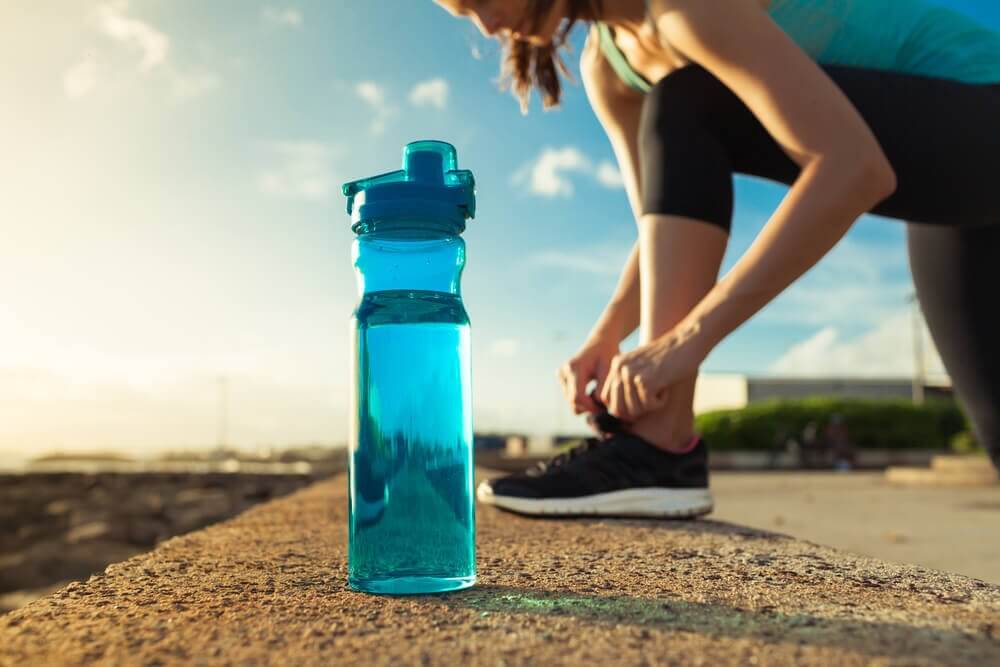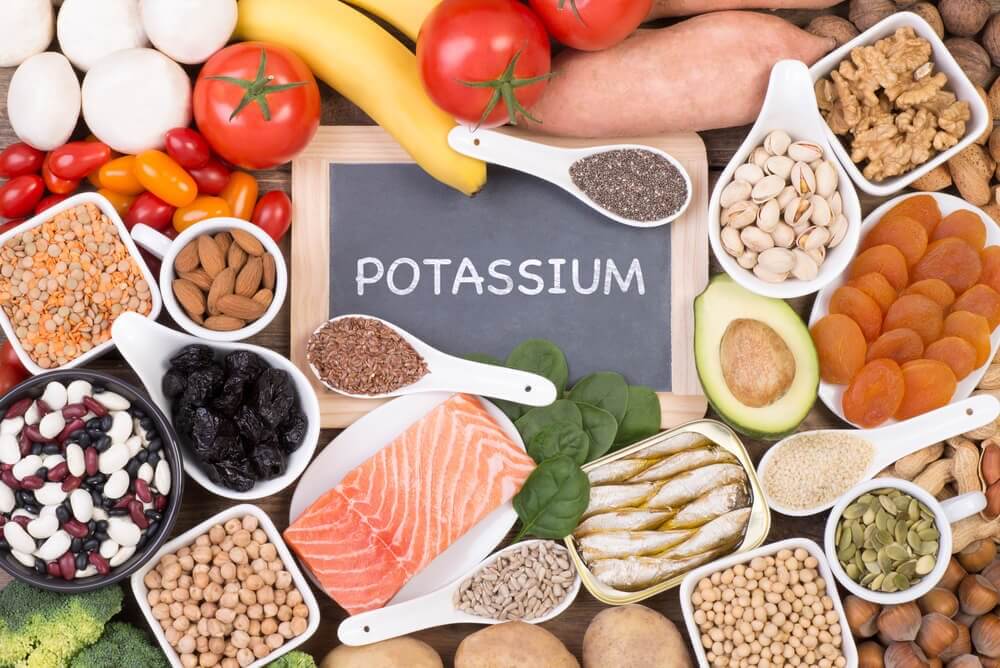How to Change Your Lifestyle if You Have Hypertension

High blood pressure, or hypertension, has lots of risk factors for those who suffer from it. Although it doesn’t have symptoms at first, over time, it can be a trigger for heart disease. Do you know how to change your lifestyle if you have high blood pressure?
Treatment for this condition may include certain medications and medical therapies. However, you can usually control it by changing some of your habits.
Because of this, today we want to share a few strategies to help bring your blood pressure to normal levels.
Tips to Change Your Lifestyle if You Have Hypertension
Hypertension occurs when blood pressure rises to unhealthy levels. It’s a disorder that can lead to damaged blood vessels because of this pressure. This, in turn, may happen because of narrow or blocked arteries.
Doctors consider high blood pressure to be when the systolic blood pressure is equal to or greater than 140 mm Hg or diastolic blood pressure equal to or greater than 90 mm Hg. Normal adult levels are 120 mm Hg systolic pressure and 80 mm Hg diastolic pressure.
The most worrisome aspect of this condition is that lots of cases don’t have symptoms. Therefore, it’s very difficult to diagnose. In fact, many doctors call it “the silent killer.” That’s why it’s very important to get regular check-ups and, of course, improve your lifestyle.
Next, we’ll take a look at some healthy ways to change your lifestyle if you have high blood pressure or would like to prevent it.
Do Physical Activity

Doing physical exercise is one of the best ways to improve your lifestyle if you have hypertension. As your heart rate and breathing increase during these activities, your heart gets stronger. Then, it has less difficulty pumping blood. Therefore, it’s beneficial to reduce pressure.
In fact, in a 2013 study, sedentary elderly people who did aerobic exercise showed a reduction of systolic blood pressure by 3.9% and 4.5% in diastolic pressure. Although more evidence is required, these results show that exercise does have benefits.
Therefore, we recommend doing physical activity for at least 40 minutes at least three or four times a week. The exercises can be moderate or intense, depending on your health levels. If you suffer from any health problems, however, it’s best to do them under the supervision of a professional.
Discover: High Blood Pressure during Pregnancy: Symptoms and Treatments
Reduce Your Sugar Intake
Sugars and refined carbohydrates have a large impact on being overweight and uncontrolled blood pressure. Although they’re common in most diets, it’s best to not eat too much of them. Scientific studies have suggested that a diet that’s low in these substances can help to lower blood pressure.
On the other hand, a diet with limited sugars and refined carbs makes you feel full longer. That’s because it prioritizes healthy foods like whole carbohydrates, proteins, and healthy fats.
Eat More Potassium and Less Sodium

Part of improving your lifestyle means changing your eating habits. Following this recommendation, it’s important to emphasize that it’s good to eat more potassium and less sodium. Potassium helps reduce blood vessel tension and decrease the effects of salt.
However, diets with too much potassium can be harmful to your kidney health. Therefore, before increasing your intake, talk to your doctor first.
Foods with this mineral are:
- Low-fat dairy products.
- Fatty fish.
- Fruits, such as bananas, apricots, avocados, and oranges.
- Vegetables, such as sweet potatoes, potatoes, tomatoes, and spinach.
Sodium is present in a wide variety of foods on the market. It’s important to check the labels and look for other foods to replace them.
Avoid Tobacco When You Change Your Lifestyle
There are many reasons to quit tobacco use. Although many smokers ignore them, smoking increases your blood pressure and heart rate. In fact, its toxic components deteriorate the walls of the blood vessels, causing inflammation and narrowing of the arteries.
In fact, even the people that also breathe secondhand smoke suffer from these harmful effects. Therefore, it’s important to avoid it completely and breathe fresh air.
Also read: Five Herbs that You Can Prepare to Treat Hypertension
Control Your Stress

Having good stress management skills is the key to change your lifestyle if you have hypertension. Although many people underestimate it, stress makes many diseases worse.
However, you can control it with some relaxation techniques such as:
- Yoga and meditation.
- Breathing exercises.
- Read a book.
- Acupuncture and massage.
In Conclusion
It’s essential that you check your blood pressure periodically. Although these habits can help improve it, it’s important to know how to treat high blood pressure.
In some cases, you may need prescription medications from your doctor.
All cited sources were thoroughly reviewed by our team to ensure their quality, reliability, currency, and validity. The bibliography of this article was considered reliable and of academic or scientific accuracy.
- Huang, G., Shi, X., Gibson, C. A., Huang, S. C., Coudret, N. A., & Ehlman, M. C. (2013). Controlled aerobic exercise training reduces resting blood pressure in sedentary older adults. Blood Pressure. https://doi.org/10.3109/08037051.2013.778003
- Ajala, O., English, P., & Pinkney, J. (2013). Systematic review and meta-analysis of different dietary approaches to the management of type 2 diabetes1-3. American Journal of Clinical Nutrition. https://doi.org/10.3945/ajcn.112.042457
- Yancy, W. S., Westman, E. C., McDuffie, J. R., Grambow, S. C., Jeffreys, A. S., Bolton, J., … Oddone, E. Z. (2010). A randomized trial of a low-carbohydrate diet vs orlistat plus a low-fat diet for weight loss. Archives of Internal Medicine. https://doi.org/10.1001/archinternmed.2009.492
- Ha, S. K. (2014). Dietary salt intake and hypertension. Electrolyte and Blood Pressure. https://doi.org/10.5049/EBP.2014.12.1.7
- Frisoli, T. M., Schmieder, R. E., Grodzicki, T., & Messerli, F. H. (2012). Salt and hypertension: Is salt dietary reduction worth the effort? American Journal of Medicine. https://doi.org/10.1016/j.amjmed.2011.10.023
- Seyedzadeh, A., Hashemi, F., & Soleimani, A. (2012). Relationship between Blood Pressure and Passive Smoking in Elementary School Children. Iranian Journal of Pediatrics.
- Primatesta, P., Falaschetti, E., Gupta, S., Marmot, M. G., & Poulter, N. R. (2001). Association Between Smoking and Blood Pressure. Hypertension.
- Centers for Disease Control and Prevention (CDC). (2016). High Blood Pressure Fact Sheet. Division for Heart Disease and Stroke Prevention. https://doi.org/10.1016/0747-5632(96)00015-5
- Rosenthal, T., & Alter, A. (2012). Occupational stress and hypertension. Journal of the American Society of Hypertension. https://doi.org/10.1016/j.jash.2011.09.002
This text is provided for informational purposes only and does not replace consultation with a professional. If in doubt, consult your specialist.








